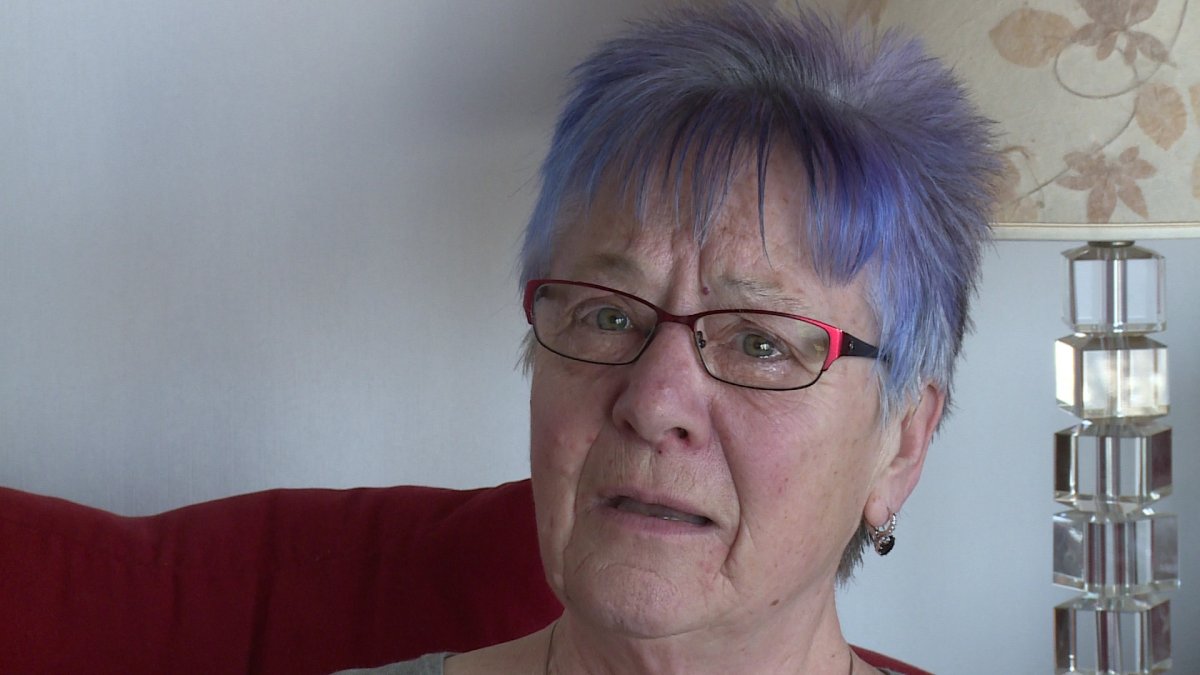HALIFAX – A Halifax woman is celebrating after a decision by the Supreme Court of Canada to strike down the ban on doctor-assisted suicide.

Sheilia Sperry wiped away tears as she reflected on what the decision would have meant to her late husband Drew. Drew was diagnosed with ALS in 2003 and suffered from the disease for nine years.
“When Drew was diagnosed, the very first thing he said to me was, ‘I will not go to the end of this process. I will not end up like a fish on the wharf gasping for breath and trapped inside my body’,” she said.
Because physician-assisted death is illegal in Canada, and will be until the ban is lifted in a year, there was little Drew could do. He ultimately passed away in 2012 after his internal organs shut down.
“It would have prevented weeks and weeks of anxiety attacks. He would have loved to be in a position to say ‘This is what I want and I’ll you when I want it’.”
However, the high court’s decision means it will no longer be illegal for a physician to help an ill or suffering person from ending his or her own life.
“He would have been thrilled. I’m sure he’s wherever he is clapping his hands and dancing madly,” said Sperry, who is also the provincial coordinator for Dying with Dignity – Nova Scotia.
“To know I could have said to him ‘Honey, when you’re ready, let me know and we’ll go this together’, it would [have made] such a difference.”
The decision is also being praised by Jocelyn Downie, a bioethics and health law professor at Dalhousie University.
Downie called the ruling responsible and compassionate, adding the unanimous decision leaves no grey area about what happens next.
“Assisted dying is going to be legal in Canada, which will mean an enormous amount to people – not just people who access assisted dying but rather all those that are given comfort by knowing assisted dying will be available if they come to need it,” she said.
Downie said the law is finally catching up to public opinion over the issue.
“We are now with other jurisdictions that have decided that leaving people without access to assisted dying is, to use the word of the Supreme Court of Canada, cruel.”
She hopes the new legislation includes clarity on who can access doctor-assisted suicide, reporting requirements for healthcare providers and establishes an oversight system.
The ban on assisted suicide will be lifted in a year, giving the College of Physicians and Surgeons of Nova Scotia and Doctors Nova Scotia time to figure out how to proceed.
“Obviously we want as much clarity and less ambiguity as possible,” said Kevin Chapman, the director of health policy for Doctors Nova Scotia. “We’ll spend that time trying to understand where this will go.”
Chapman said several doctors have already called the organization to discuss what the ruling means for them.
“We want to make sure physicians, while respecting the law, are also free to exercise their own moral or ethical decision in terms of whether they participate or not while obviously not putting their patients in undue harm or undue risk of delay,” he said.
Dr. Gus Grant, the CEO of the College of Physicians and Surgeons (CPS) of Nova Scotia, said CPS will likely work closely with the province to understand how the right to die will be exercised in the law.
“To me, at the end of the day, the important thing is clarify of roles for physicians and of course to establish a process whereby appropriate patients can access this right and with appropriate safeguards in place so that vulnerable patients aren’t caught up,” he said.
N.S. Health Minister Leo Glavine released the following statement on the decision:
“This decision has just been released and it deals with sections of the Criminal Code of Canada, which are not a provincial responsibility. Like many other provinces, we will be watching to see what the federal government chooses to do as a result.”
Meanwhile, Sperry hopes the ruling encourages people to discuss end-of-life options with their loved ones.
“[People] talk about what car you’re going to buy, where you’re going to live and how many kids you want. But you never discuss how you’re going to die,” she said.
“Hopefully this decision and the legislation that comes from it will make people say ‘I now have a choice. I don’t have to just wait until my heart stops.'”





Comments